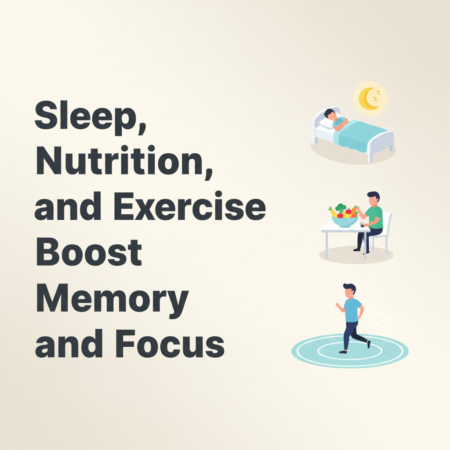Introduction
Take-home exams are becoming more prevalent in academic settings, offering both challenges and opportunities for students. These extended assessments demand careful planning, time management, and critical thinking. In this post, we’ll explore strategies for navigating take-home exams, helping you approach them with confidence and success. Whether you’re new to these exams or looking to improve your approach, read on for valuable insights and tips.
Understanding the Nature of Take-Home Exams
Take-home exams are assessments completed outside the classroom, offering flexibility compared to traditional in-class exams. Unlike timed tests, take-home exams provide extended timeframes, often spanning several days, and allow students to reference course materials while working. Educators and institutions adopt take-home exams to better simulate real-world scenarios, promote critical thinking, and accommodate diverse learning styles. These assessments encourage independent research and application of course concepts, reflecting the practical nature of many professions. Overall, take-home exams offer students a valuable opportunity to showcase their understanding and skills in a more comprehensive manner.
Time Management and Planning
Effective time management is crucial when tackling take-home exams. Here are some strategies to help you create a realistic study schedule and allocate time effectively:
- Set Priorities:
Identify the tasks and topics that require the most attention and prioritize them in your study schedule. Focus on understanding and mastering these areas first. - Break It Down:
Divide the exam tasks into smaller, manageable chunks and allocate specific time slots for each task. This will help prevent overwhelm and ensure steady progress. - Use Time Blocks:
Schedule dedicated time blocks for studying, research, writing, and revising. Stick to these time blocks and avoid multitasking to maintain focus and productivity. - Set Deadlines:
Establish deadlines for completing different sections of the exam. This will help you stay on track and avoid last-minute rushes. Be realistic with your deadlines and allow extra time for unexpected delays or challenges. - Take Breaks:
Factor in regular breaks during your study sessions to recharge and avoid burnout. Short breaks can improve concentration and overall productivity.
Organizing Resources and Materials
Ensuring your study materials are well-organized is essential for success in take-home exams. Here are some tips to help you:
- Organize Study Materials:
Gather all your study materials, including notes, textbooks, and online resources, and organize them in a way that makes them easy to access during the exam. Consider using folders, binders, or digital tools to keep everything neatly organized. - Create an Organized Workspace:
Set up a dedicated study area that is free from distractions and conducive to focused studying. Keep your workspace tidy and clutter-free to minimize distractions and promote productivity. - Utilize Technology Tools:
Take advantage of technology tools to manage and access your study materials efficiently. Use note-taking apps, cloud storage services, or digital flashcards to organize and review your notes, textbooks, and other resources. These tools can help you stay organized and save time when studying for your exam. - Label and Categorize:
Label your study materials and categorize them based on subject, topic, or relevance to the exam. This will make it easier to find specific information when you need it during the exam.
Developing Critical Thinking and Analytical Skills
Critical thinking and analytical skills are essential for success in take-home exams. Here’s how you can enhance these skills:
- Recognize the Importance:
Understand the significance of critical thinking and analytical skills in approaching take-home exams. These skills enable you to analyze exam questions, identify key concepts, and formulate well-structured responses. - Analyze Exam Questions:
Take time to carefully read and analyze each exam question. Break down the question into its components, identify any keywords or instructions, and consider what is being asked before formulating your response. - Identify Key Concepts:
Focus on identifying the main ideas or themes presented in the exam questions. Look for common patterns, recurring themes, or important concepts that may guide your response. - Formulate Well-Structured Responses:
Organize your thoughts and ideas logically to create well-structured responses. Start by outlining your response, including an introduction, main points, and conclusion. Support your arguments with evidence and examples to strengthen your analysis. - Practice Critical Thinking Exercises:
Engage in critical thinking exercises and practice questions to hone your analytical skills. This could include analyzing case studies, evaluating arguments, or solving problem-solving scenarios.
Maintaining Academic Integrity
Ensuring academic integrity is crucial when it comes to take-home exams. Here’s how you can uphold ethical standards:
- Understanding Ethical Considerations:
Recognize the ethical considerations and challenges associated with take-home exams, including the temptation for cheating and plagiarism. Understand that academic dishonesty undermines the integrity of the learning process and devalues your own achievements. - Upholding Integrity:
Commit to upholding academic integrity by citing sources properly and avoiding unauthorized collaboration. When referencing external sources, be sure to provide proper citations to give credit to the original authors and acknowledge their contributions. - Avoiding Plagiarism:
Take care to avoid plagiarism by ensuring that your work is original and properly attributed. Paraphrase information in your own words and use quotation marks when directly quoting from a source. Always cite your sources accurately and adhere to the citation guidelines provided by your institution. - Educator’s Role:
Educators play a vital role in designing take-home exams that discourage academic misconduct while promoting learning and critical thinking. They can implement strategies such as creating unique exam questions, setting clear expectations for academic integrity, and providing resources on proper citation and referencing.
Seeking Clarification and Support
Ask for Clarification:
If you’re unsure about any aspect of the exam, whether it’s the instructions, expectations, or content, don’t hesitate to reach out to your instructor for clarification. They’re there to help you succeed and will appreciate your initiative in seeking clarification.
Utilize Support Resources:
Take advantage of available support resources, such as office hours, tutoring services, and online forums. These resources can provide valuable guidance and assistance in understanding difficult concepts or navigating challenging exam questions.
Communicate Effectively:
When reaching out to instructors or peers for support, be clear and concise in your communication. Clearly articulate your questions or concerns and provide relevant context to help others understand the issue. Be respectful and courteous in your interactions, and remember to express gratitude for any assistance provided.
Practicing Self-Care and Stress Management
Taking care of yourself is essential, especially during exam time. Here’s how you can prioritize self-care and manage stress effectively:
- Recognize the Importance:
Understand that prioritizing self-care and managing stress is crucial for maintaining your well-being and performing your best during exams. Acknowledge that taking care of yourself is not selfish but necessary for academic success. - Maintain a Healthy Balance:
Strive to maintain a healthy work-life balance by scheduling regular breaks, engaging in physical activity, and incorporating relaxation techniques into your routine. Taking short breaks between study sessions can help refresh your mind and prevent burnout. - Manage Stress:
Develop strategies for managing exam-related stress and anxiety, such as practicing mindfulness, deep breathing exercises, or progressive muscle relaxation. Engage in activities that help you relax and unwind, whether it’s listening to music, spending time outdoors, or practicing hobbies you enjoy. - Seek Social Support:
Don’t hesitate to reach out to friends, family, or classmates for support during stressful times. Sharing your feelings and concerns with others can provide comfort and reassurance, reminding you that you’re not alone in facing challenges.
Conclusion
To excel in take-home exams, focus on key strategies like time management, critical thinking, and self-care. By staying organized, maintaining academic integrity, seeking support when needed, and adopting a proactive approach, you’ll optimize your performance. Remember, your dedication matters, and with these strategies, success is within reach.







